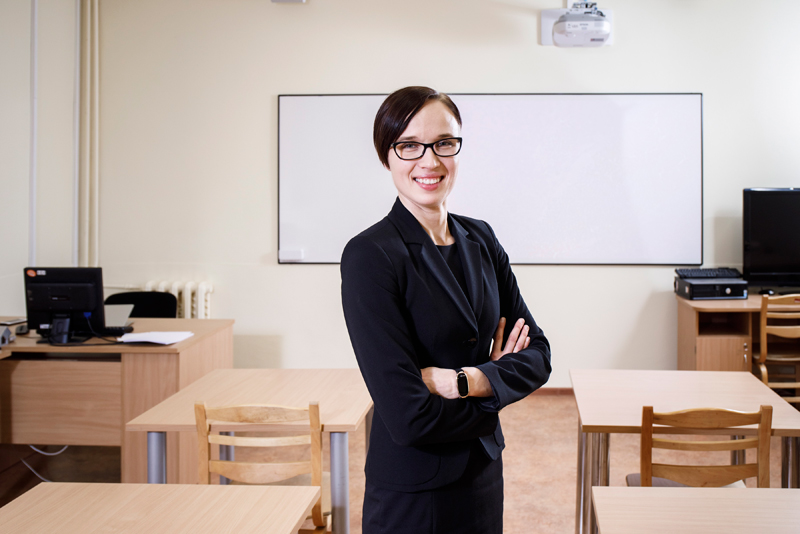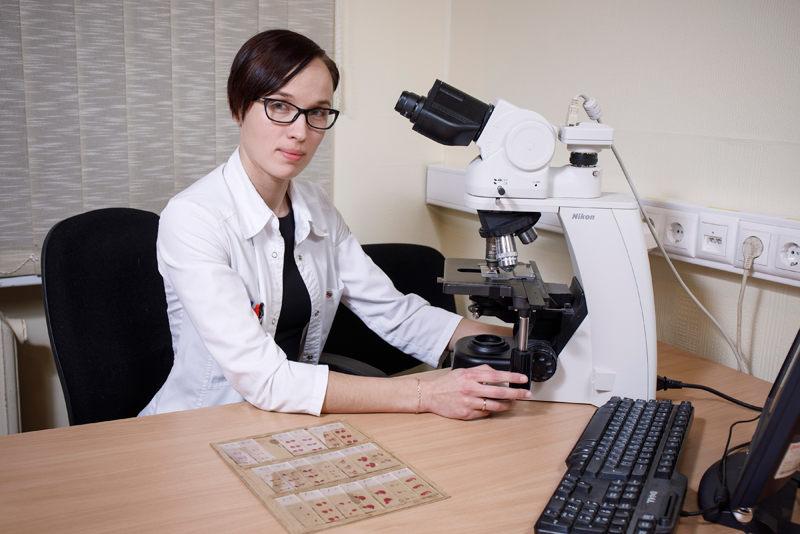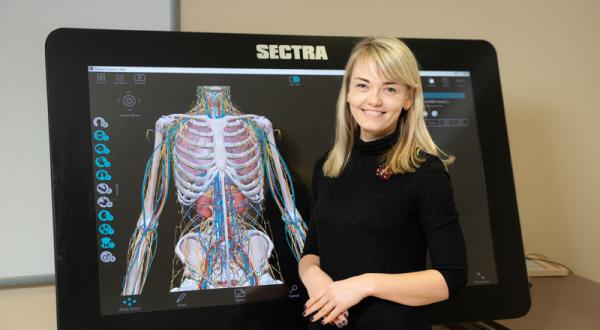Research Week scientist Džeina Mežale: new questions always arise in science
Džeina Mežale is a young researcher who already promoted science among RSU students during her studies by organising various scientific events within and outside the University. She was the person who, in cooperation with the RSU Student Union team, transformed the RSU Student Conference into an annual international event and the largest student conference in the Baltic States. Currently, she is a lecturer at the RSU Department of Pathology and a 3rd year student in the Doctoral study programme Medicine.
Džeina actively participates in the international project “Twinning on DNA-Based Cancer Vaccines (VACTRAIN)” and will start working on the project “New approach to active immune therapy of C hepatitis C related cancer (LIVE®VAC)”, funded by the Latvian Council of Science. She is co-author of seven internationally-reviewed scientific monographs in English that correspond to the theme of her doctoral thesis, authoring one or two chapters in each of these books.

Why am I involved in research?
My path in science started in the 3rd year of my undergraduate studies, when I became interested in malignant processes in the liver. A study, which started as a simple research study of a 3rd year student and the first encounter with the pathology of the liver, has grown into a doctoral thesis and international cooperation with researchers in Sweden, Russia, Poland and Ukraine. Research of malignant liver tumours at the tissue and molecular level has been among my interests for the eighth year now.
Results of good research do not come without putting great effort and hard work into the research; however, it is easier if one can work in an environment where colleagues lead by example, which means not giving up on facing the first difficulties, and the young lecturers in the Department of Pathology most certainly have this quality.
I have always been fascinated by the fact that it is impossible to reach the end point of a study, because during the research process, irrespective of the topic, new “whys?” always appear. It seems to be a never-ending process of development and improvement. Undoubtedly, malignant tumours nowadays are widely studied from the perspective of various medical disciplines and from the point of view of healthcare in general; however, seeing the constantly high number of patients, oncology as a research direction definitely involves many topical and still unanswered “hows” and “whys”.

Why will I attend the RSU International Scientific Conference?
Sometimes, when you focus on one particular study direction for a long period of time, the global view on various things starts to blur and some things may slip past unnoticed; therefore, an international conference is a great opportunity to find out what other researchers are doing and get to know researchers from various countries in one place. We are always proud and happy to visit international conferences outside Latvia, emphasising how important it is to establish new contacts and expand the limits of one's own studies. This year, RSU offers a great opportunity to enjoy this international atmosphere right here in our University.
I think, that significant achievements and discoveries are based on successful cooperation. I will also speak about the result of such successful cooperation with the Karolinska Institute in Sweden while studying the effect of immunisation on the metastatic process of malignant tumours in the liver, when I will present at the thematic conference “Digital pathology”.
Why should others attend the conference?
Research cannot be put in a small, closed box and kept for yourself, what you know must be shared with others. And nowadays, when the borders are open, sharing and cooperation is meaningful when it is implemented internationally. I want to call on young researchers in particular to be active and speak at the conference. For scientists with extensive experience in research it is a chance to share their experience, whereas for us, the younger generation researchers, it is not only a way to acquire additional knowledge, but also a great chance to present, test and prove oneself. The greatest value added is provided by constructive discussions and the questions asked following presentations, because very often it allows one to understand, in which direction to continue one's own studies and what has been done correctly or incorrectly. For those who are at the very beginning of their scientific path, it is much easier to walk the path of science together with experienced colleagues who you can meet at conferences.
Related news
 Virtual reality and simulations – not only for education, but also for researchResearchers up close
Virtual reality and simulations – not only for education, but also for researchResearchers up close